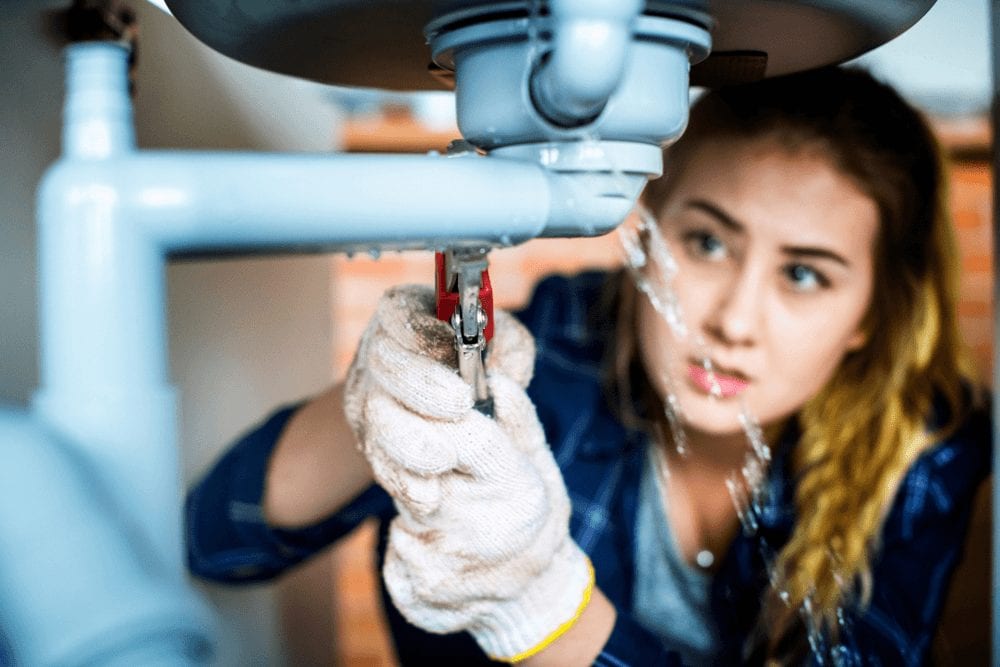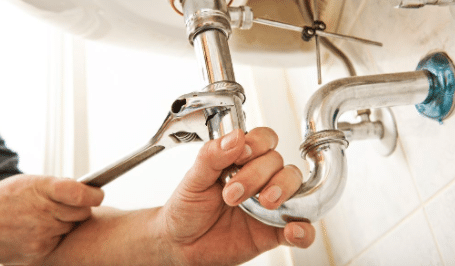Six Top Dangers To The Home Plumbing Fixtures
Six Top Dangers To The Home Plumbing Fixtures
Blog Article
This great article in the next paragraphs pertaining to Leak Detection and Repair Without Destroying Your Home is highly fascinating. Read on and draw your own personal assumptions.

The key to long-term home appliances, unsurprisingly, is proper maintenance. There's no hard and fast rule that can ensure your plumbing devices a lengthy wear, yet you can protect against unnecessary damage and repair work by preventing poor plumbing practices.
You must stop doing these 6 things else you'll keep calling your plumber over for minor faults.
Purging whatever
Yes, your commode drainpipe leads to the sewers, but that does not indicate you need to dump simply anything away. Several 'flushable' products are in fact great obstruction starters, for example floss. Asides maintaining apparent non-flushable products like cables and plastics out of your bathroom, you ought to additionally prevent flushing cotton buds, menstruation products, wipes, daipers and also condoms down the toilet drainpipe.
Pouring oil in the sink
We understand properly dealing with grease after a hearty meal is a pain. However simply pouring it down the tubes can do long-term damage to your pipelines. "The fat and grease can block your drainpipe terribly adequate to compel you to call a plumber," discusses Dawson. "Plumbing works best when it's well cared for-- not abused with grease."
Utilizing way too much drainpipe cleaner
Making use of a drain cleaner more than once or twice a month is a sign that something significant is going on within your pipelines. Now, rather than dealing with the major concern, you go with a quick fix; a carbonated drainpipe cleaner. Rightfully, a drainpipe cleaner will take care of the blockage, however at what expense?
The chemicals in a drain cleaner can accelerate the deterioration of your pipelines. Add that to whatever underlying problem is triggering the clog as well as you might have to a serious issue on your hands.
If you experience way too many blockages, call your emergency plumber instead of utilizing a drain cleaner.
Not rinsing recipes before packing them right into the dish washer
it's called a dishwasher, but tossing in meals, pots, and also frying pans covered in big food bits can really trigger some major damages to the home appliance, resulting in long-lasting troubles down the line. "Property owners may have to get their dishwashing machine fixed regularly if they do not wash their meals before loading, or at the very least remove larger food pieces," explains Audrey Monell, proprietor of Forrest Anderson Plumbing and Air Conditioner in Glendale, Arizona. "Food that gets stuck on recipes triggers the dish washer to function harder, which can wear down components quicker, causing problems."
DIYing every little thing
With plumbing, a stitch in time really does conserve 9. You can prevent a fullblown plumbing emergency by calling your plumber at the right time.
You may have discovered a few plumbing hacks from your papa, however you ought to recognize where to fix a limit and also call a professional. For example, you may have the ability to repair an obstruction yourself, however you shouldn't attempt to change a pipeline. You might inequality pipes or overtighten a bolt, causing more injury and damages than you believed. Calling a plumber is a safe and economical decision.
Not changing your dishwasher hose pipes
One very easy means to guarantee that you utilize your dishwasher for many years is to replace the hose pipe at the very least when in 5 years. This likewise looks for cleaning equipment pipes.
With time, food fragments, soap and also grease can form obstructions within your pipes. Changing them promptly will prevent any type of presure accumulate that can harm the inner workings of your dish washer or washing maker.
A strengthened steel intertwined pipe does a terrific work of extending your equipment's use time.
No winter season safety measures
Severe weather conditions misbehave for your pipes, specifically if they're constructed from steel. You must shield your subjected pipelines, and also your water storage tank, even if you have a water heater. You must also turn off your yard hose pipe valve and also any other outside water networks. These networks are outlets for chilly; you pipelines can begin to ice up from outside if you don't.
Prevent Water Damage from Plumbing and Appliances
Prevent toilet failure
Be patient after you flush and wait for the valve to completely finish refilling the tank and bowl. If an overflow looks imminent, lift off the tank cover and lift the float to shut off water flow to the tank, and then turn off the supply valve.
Twice a year, inspect a toilet’s components, such as the fill, supply, and flush valves, and the supply line. Make sure you can turn off the supply. If you have older screw type valves that are hard to turn or start leaking, consider replacing them with simpler ball valves that are easy to shut off quickly.
Inspect and maintain your water heater
Inspect your anode rod every two years, or every year once the warranty has expired, to determine if it needs to be replaced.
Flush water heater tanks every six months to remove sediment by attaching a garden hose to the valve at the base. For safety, first turn off the power and run hot water until it is cool.
Get an annual inspection from a plumbing professional including the shut-off valve and all piping. Signs of broken valves and loose or wet joints and rust are a sign that more severe damage is coming.
Maintain washing machine supply lines
Look for signs the supply hose may be ready to fail—blisters in the hose, worn tubing, stress cracks, or a loose connection.
Replace the supply hose with a reinforced steel braided hose if it shows any sign of wear.
Tighten the connection if it feels loose. The most common site of failure is near the connection where the hose bends.
Replace supply hoses every five years, even if there is no obvious deterioration or wear. Some signs of deterioration may occur from the inside out and may not be visible until it is too late. When replacing washing machine supply hoses, always choose a reinforced steel braided hose over the traditional un-reinforced rubber hose. These hoses will last longer and are far less likely to result in a catastrophic water loss.
Prevent plumbing failure
Never pour grease down the drain.
Plant trees away from lateral drain lines to prevent roots from damaging piping.
If your home’s sewer system is connected to the city’s sewer system—a particular problem for older homes—or if you are located downhill or below street level, contact a plumbing professional to install a backflow prevention assembly into your sewer system.
Call a professional if you notice signs of a plumbing problem—an increased monthly water bill, banging pipes, rust stains, moisture in the walls or on the floor, and signs of wet soil erosion near the foundation.
https://disastersafety.org/maintenance/prevent-water-damage-from-plumbing-and-appliances/

I discovered that entry about Ways to Make Your Pipes Last Longer when surfing the web. Liked our blog entry? Please share it. Let somebody else locate it. Thanks a lot for your time invested reading it.
Article Report this page